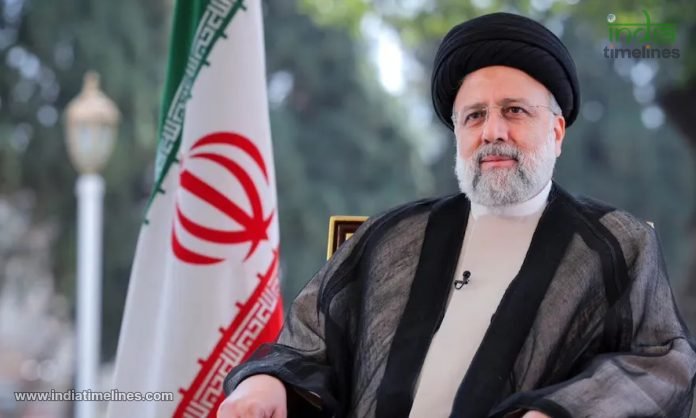
Ebrahim Raisi is a name that resonates deeply within the political and judicial circles of Iran. Known for his significant influence and controversial rulings, Raisi’s life and career offer a fascinating glimpse into the complexities of Iranian politics. This article delves into his early life, career, political journey, and the impact he has had on both domestic and international stages.
Visit Us: Indiatimelines
Early Life and Background
Birth Date and Place
Ebrahim Raisi was born on December 14, 1960, in the city of Mashhad, located in northeastern Iran. Mashhad, known for being a religious and cultural hub, played a crucial role in shaping Raisi’s early years and ideological leanings.
Family Background
Raisi hails from a devout Shia Muslim family. His father, a cleric, was a significant influence in his early life, instilling in him the values and beliefs that would later define his career. The religious environment of Mashhad, combined with his family’s clerical background, paved the way for his future in the judiciary and politics.
Education and Early Influences
Raisi pursued his early education in Mashhad before moving to the religious city of Qom to further his studies. He attended the Qom Seminary, where he was mentored by prominent clerics and scholars. This period was instrumental in shaping his conservative views and commitment to the Islamic Revolution’s principles.
Career Beginnings
Initial Roles in Government
Raisi’s career in government began in the early 1980s, shortly after the Iranian Revolution. He initially took on roles within the judiciary, where his conservative stance and commitment to the revolution’s ideals quickly earned him recognition.
Early Judicial Roles
His early judicial roles included serving as a prosecutor in various regions, where he was known for his strict enforcement of Islamic law. These positions laid the foundation for his rise within Iran’s judicial system, marking him as a staunch defender of the revolution’s principles.
Rise in the Judicial System
Key Judicial Positions
Throughout the 1990s and 2000s, Raisi held several key judicial positions, including the Deputy Head of the Judiciary. His tenure in these roles was marked by significant judicial decisions and reforms that often sparked controversy and debate.
Controversial Rulings and Cases
Raisi’s judicial career is punctuated by several controversial rulings, particularly those involving political dissidents and human rights activists. His involvement in the mass executions of political prisoners in 1988 has been a focal point of criticism from international human rights organizations.
Political Career
Entry into Politics
Raisi’s transition from judiciary to politics began in earnest in the late 2010s. His entry into the political arena was marked by his strong alignment with conservative factions and his advocacy for stringent social and economic policies.
Major Political Positions Held
Before his presidency, Raisi held several significant political positions, including the Head of the Astan Quds Razavi, a powerful religious and economic institution. This role bolstered his political clout and provided a platform for his presidential ambitions.
Presidential Campaigns
2017 Presidential Campaign
Raisi first ran for president in 2017, positioning himself as a conservative alternative to the then-incumbent Hassan Rouhani. Despite a robust campaign, he was defeated, securing only about 38% of the vote. This loss, however, did not deter his political aspirations.
2021 Presidential Campaign
In 2021, Raisi ran for president again, this time with broader support from conservative factions. His campaign focused on combating corruption and addressing economic woes, resonating with many voters. He won the election with a significant majority, marking a pivotal moment in his political career.
Presidency
Election as President
Ebrahim Raisi was inaugurated as the President of Iran on August 5, 2021. His presidency was seen as a consolidation of conservative power, with promises of economic reform and a more stringent approach to social issues.
Major Policies and Initiatives
Since taking office, Raisi has introduced several key policies aimed at revitalizing Iran’s economy and strengthening its position on the global stage. His administration has focused on increasing domestic production and reducing reliance on foreign imports.
Domestic Policies
Economic Reforms
Raisi’s economic policies have centered on addressing inflation, unemployment, and economic inequality. His administration has implemented measures to boost local industries and support small businesses, although these efforts have faced significant challenges.
Social Policies
On the social front, Raisi has maintained a conservative stance, advocating for policies that align with traditional Islamic values. This includes stricter enforcement of dress codes and limitations on certain freedoms, which have sparked both support and opposition within Iran.
Foreign Policies
Relations with Neighboring Countries
Raisi’s foreign policy has been characterized by efforts to strengthen ties with neighboring countries, particularly those within the region. He has sought to enhance economic and political cooperation with allies while maintaining a firm stance against adversaries.
Stance on International Issues
On the international stage, Raisi has adopted a more confrontational approach towards the West, particularly the United States. His administration has emphasized the need for independence from Western influence and has sought to build alliances with non-Western powers.
Controversies and Criticisms
Human Rights Issues
Raisi’s tenure in both the judiciary and the presidency has been marred by allegations of human rights abuses. International organizations have condemned his involvement in the 1988 mass executions and his administration’s crackdown on dissent.
Corruption Allegations
Despite his campaign promises to combat corruption, Raisi’s administration has faced accusations of corruption and mismanagement. These allegations have cast a shadow over his efforts to present himself as a reformer.
Personal Life
Marriage and Children
Raisi is married to Jamileh Alamolhoda, a university professor and daughter of a prominent cleric. The couple has two daughters, and Raisi’s family life is often highlighted as a testament to his commitment to Islamic values.
Personal Interests and Beliefs
Outside of politics, Raisi is known for his religious devotion and interest in academic pursuits. He often emphasizes the importance of education and religious study, reflecting his own background and beliefs.
Legacy and Impact
Influence on Iranian Politics
Raisi’s influence on Iranian politics is significant, particularly in shaping the judiciary and conservative policies. His tenure has solidified the conservative hold on power and has impacted the direction of the country’s domestic and foreign policies.
Global Perception
Internationally, Raisi is viewed with a mix of apprehension and skepticism, particularly due to his human rights record and confrontational stance towards the West. However, his leadership is also seen as a reflection of Iran’s broader political and ideological trajectory.
Death
Date and Circumstances of Death
As of the time of writing, Ebrahim Raisi is still alive. Any future developments regarding his death will undoubtedly have significant implications for Iran and its political landscape.
Public and Political Reaction
Raisi’s eventual passing will likely be met with a wide range of reactions, from mourning by his supporters to critical reflections by his detractors. His legacy will be debated and analyzed for years to come.
Conclusion
Ebrahim Raisi’s life and career are emblematic of the complexities and contradictions within Iranian politics. From his early days in Mashhad to his rise to the presidency, Raisi’s journey reflects a steadfast commitment to conservative values and the Islamic Revolution’s ideals. His impact on Iran, both positive and controversial, will be felt for generations.
FAQs
1. When was Ebrahim Raisi born?
Ebrahim Raisi was born on December 14, 1960, in Mashhad, Iran.
2. What positions did Ebrahim Raisi hold before becoming president?
Before becoming president, Raisi held several key positions, including Deputy Head of the Judiciary and Head of the Astan Quds Razavi.
3. What are some controversies associated with Ebrahim Raisi?
Raisi has been involved in several controversies, including his role in the 1988 mass executions of political prisoners and allegations of human rights abuses and corruption.
4. How did Ebrahim Raisi’s presidency impact Iran’s foreign relations?
Raisi’s presidency has seen a focus on strengthening ties with neighboring countries and a more confrontational stance towards Western nations, particularly the United States.
5. What is Ebrahim Raisi’s legacy?
Raisi’s legacy is marked by his influence on Iran’s judiciary and conservative policies, as well as the controversies surrounding his human rights record and political decisions.

































